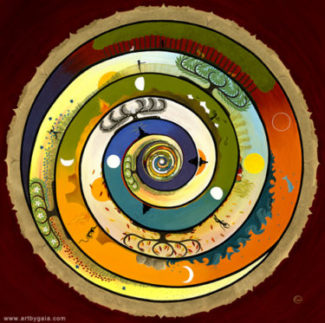By Rabbi Alon Meltzer
Across cultures there is the idea of finding wholeness. Some call it zen, others mindfulness. It has resurfaced in the present as a catchy buzzword situated alongside green juices, activewear, and motivational speakers. In essence though, it is essential in trying to find purpose, meaning, and belonging in a modern world obscured by the daily grind, invasive technology, and soundbites.
At Shalom, an organisation which aims to increase the vibrancy and engagement of the Sydney Jewish community, the idea of finding wholeness is central to what we do. We spend many hours balancing the need to develop new ideas, pre-empting the cultural shifts of Jewish communal living, with the art of customer centric design, talking to our community to see what they want.
We offer a large variety of programs, tackling the full gamut of ages and affiliations. Everything from PJ Library to Limmud, from professional development to social engagement. Whether it is learning at workshops or classes, living Jewish traditions at a Shabbat meal, or experiencing the richness of Jewish inspired theatre, we balance the notion of being pioneering and being engaging.
At our recent Thinktrepreneur Masterclass, where we aim to get people thinking in the mindset of being entrepreneurs and intrapreneurs, we explored the value of vision building. Bella Zanesco, author of Smart Girls Screw Up Too, walked participants through the steps of evaluating life led, setting priorities for life desired, and reaching a sense of purpose through a multifaceted and rich vision. The tasks were much like a cheshbonhanefesh, the reconciliation of one’s soul, based on the work by Menachem Mendel Lefin, the 18th Century leader of the Jewish enlightenment era, and the autobiography of Benjamin Franklin. This process is cathartic, causing one to realise their failings, and activate their potential. The final activity was to think of how you want to be remembered at your funeral.
Towards the end of the masterclass, I noted that this process led me to a desire to have my life being described as shleimut, from the Hebrew word shalem, meaning wholeness or completeness. Each element of my life, in my ideal vision, would be balanced and nuanced, each complimenting the other elements, challenging me to continue to grow and develop each element equally.
Over the coming days, I found this thought to be all pervasive, and realised that this is what we are trying to do in the way in which we engage the Jewish community – in fact I think it is the recipe for successful engagement. When we look at our suite of programs, we need to realise how they affect our participants, what journey they take them on, and how they fit into the balance of the already lived lives.
In 2018 we created a model called EPS (engaging, pioneering and sustainable) which would be used to evaluate existing programs, and ascertain whether ideas were worth pursuing. Each element has a list of criteria, and each program or idea has fall into a specific area on a plotted matrix, the sweet spot. If they fall out, they can be abandoned, tweaked, or redeveloped completely, but they have to fall into that sweet spot in order for us to assume success.
Key elements of the EPS model are need, innovation, and participant satisfaction. We realise that to ensure success our participants (potential or actual) must need our offering, we must be ahead of the curve, and our participants must gain something out of what we do. What these past few days have shown me, is that this is more than just nice to haves, they are imperative taking hard earned donations and transforming them into meaningful engagement. Each of these markers are elements of finding wholeness, of making the lives of our participants more complete, complimenting their lives lived and developing them on their journey to their vision actualised.
Whether it is the children’s books that change the bedtime routine from something mundane, to something inherently Jewish. Or the professional development program from being a chore to tick off, to being something transformative. Or the Shabbat dinner from being something done by rote, to something that enhances bonds, rituals, and experience. Each of these need to be thought of as part of the whole, an integral piece of the puzzle that elevates the whole over the sum of the parts. When we, as Jewish engagement professionals, offer a suite of products that at its centre, develops the notion of shleimut, of completeness, we will develop a holistic community that is elevated beyond our individual institutional goals.
As a father, rabbi, and sociologist, Jewish community is everything to Alon Meltzer. Currently he serves as Director of Programs at Shalom and Rabbi of Or Chadash Synagogue in Sydney, Australia.












Leave A Comment